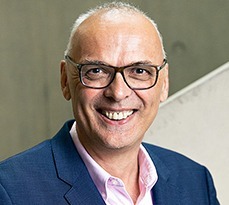A new Healthcare Utility Initiative to develop not-for-profit healthcare business models is launched by Cambridge Judge Business School and SSM Health.
A new Healthcare Utility Initiative to develop not-for-profit healthcare business models has been launched by Cambridge Judge Business School and SSM Health of the US, stemming from a research article on a novel new model for generic drugs in hospitals.
The initiative seeks to develop new business models akin to utilities, like water companies, that are designed to deliver a high-quality product or service to all customers at equal and low cost. It addresses the fact that, unlike in other industries, technological advances have not yielded big cost reductions in the healthcare sector.
“Our vision is to develop rapidly scalable not-for-profit business models for service innovation in healthcare, based on the concept of a healthcare utility,” says the initiative. “These new business models will be at the core of the development of an ecosystem of not-for-profit businesses that radically change the way we deliver healthcare and boost competition in a societally beneficial way, without limiting access or increasing costs.”

The initiative flows from a just-published article in NEJM Catalyst, part of the New England Journal of Medicine publishing group, co-authored by Stefan Scholtes, Dennis Gillings Professor of Health Management and Director of the Centre for Health Leadership & Enterprise at Cambridge Judge Business School, and Carter Dredge, Lead Futurist at SSM Health, a Catholic not-for-profit health service based in St Louis, Missouri, that serves the US Midwest.
Carter Dredge and Stefan Scholtes are co-leads of the new Healthcare Utility Initiative, which will identify opportunities for healthcare utilities, support their incubation, and conduct relevant research based on close involvement during the development and growth phase and the evaluation of mature initiatives.
The NEJM Catalyst article focuses on the growth of a model launched in 2018 by Civica Rx, which aims to bypass major drug makers to manufacture or subcontract generic pharmaceuticals for its 1,400 hospitals. The venture is set up as a nonprofit social welfare organisation funded by the hospital customers and philanthropic organisations, rather than traditional investors seeking a return.
“The aim is to combine the efficiency of a pro-competitive private enterprise with the equitable mission of a pro–social welfare organisation,” the article says. “This new organisational construct represents an opportunity that could be adapted and implemented in other areas of the health care landscape.”
Civica Rx was founded by seven health systems: the Catholic Health Initiatives (now CommonSpirit), HCA Healthcare, Intermountain Healthcare, Mayo Clinic, Providence, SSM Health, and Trinity Health, and three philanthropies: Laura and John Arnold Foundation, Peterson Center on Healthcare, and the Gary and Mary West Foundation.
Three years after its founding, which initially focused on hospital-based drugs facing shortages such as antibiotics, the venture now provides more than 50 generic drugs to more than 50 health systems, and also supplies generic medications to the US Defense Department and Department of Veterans Affairs.
“While the venture is focused on the drug market in the US, the basic tenets of its business model are portable to other products and services, and beyond the US to the UK, the rest of Europe and around the globe,” says Professor Stefan Scholtes.
“Vibrant competitive ecosystems of not-for-profit businesses are critical to tackle market failures that drive up costs in the US and to break down bureaucratic institutional inertia that slows down service innovation in the UK. This initiative has been launched to support the development of such ecosystems,” he says.
Adds Carter Dredge: “We’ve already seen great success with the healthcare utility model in the United States and are excited to partner with Cambridge Judge Business School to further replicate this concept. We believe it has the potential to help us solve some of the biggest challenges in health care and beyond.”
The business model of Civica Rx is based on four basic principles, the article outlines: nobody owns the companies, so it’s managed by “stewards” instead of owners; everyone is charged the same price with no special deals, with price cuts from scaled-up quantity shared across the board; the venture “decided to go big and go long” with large-scale and long-term purchasing agreements from 500 hospitals on Day 1; and that buyers of the products would become the company’s funders.
“This essential customer-financing element eliminated the incentive to push for higher prices and reoriented the sales strategy from ‘what is the highest cost that the market will bear’ to ‘what is the lowest sustainable cost that we can deliver to the market’”, the authors say.
The authors emphasise that the Civica Rx model is “not a panacea”, because it focuses on market competition failures in areas with high barriers to entry and traditional inability of competitors to scale. The model works well with long-established generic drugs, but may not be ideal for novel drug development due to their high uncertainty and up-front costs.
The article concludes by placing the Civica Rx model within a broader discussion of innovation. “The model, while novel, is highly replicable. It wasn’t about a new technology or a new biological discovery, it was about a new way of working together. When referencing disruptive innovation, we often refer to the new technologies themselves: personal computers versus mainframes, video streaming versus physical movie rentals, etc. However, in the case of Civica, it is the company’s structure and business model that enables the disruption, not a new technology. The structure itself is the disruptive innovation.”


